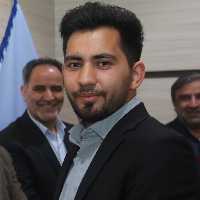Studying and Analyzing Regional Inequalities(case study: cities of Ardabil province, Iran 2006 - 2011)
Abstract:
In this study, to show the inequality between different cities in Ardebil province, 60 developmental indicators in different sections including health care, social, educational, cultural and infrastructural sections have been analyzed through VIKOR model. Moreover, for data analysis and graph and table representation of data Excel, SPSS, and ARC Map 10.1 software was used. For determining validity of the research indicators, questionnaires were completed by experts (16 experts and professionals in the related area) through AHP model.
A survey in 2011 showed that from among 10 cities in Ardabil province, Ardebil city; Serein Germy and Khalkhal; Parsabad, Bilesavar and Namin; Meshginshahr, Nir and Kosar were developed, developing, less developed, and undeveloped areas, respectively. This inequality is the result of environmental, economic and political factors and it also reflects inadequacy of spatial planning, which places Ardabil in its high priority for development.
Furthermore, according to the conducted analyses it is concluded that there is an imbalanced regional inequality on city scale in Ardabil province; there is a meaningful and positive relationship between the population of a city and the degree of its development; finally there is a meaningful and positive relationship between the distance from the provincial capital and the degree of its development.
A survey in 2011 showed that from among 10 cities in Ardabil province, Ardebil city; Serein Germy and Khalkhal; Parsabad, Bilesavar and Namin; Meshginshahr, Nir and Kosar were developed, developing, less developed, and undeveloped areas, respectively. This inequality is the result of environmental, economic and political factors and it also reflects inadequacy of spatial planning, which places Ardabil in its high priority for development.
Furthermore, according to the conducted analyses it is concluded that there is an imbalanced regional inequality on city scale in Ardabil province; there is a meaningful and positive relationship between the population of a city and the degree of its development; finally there is a meaningful and positive relationship between the distance from the provincial capital and the degree of its development.
Keywords:
Language:
Persian
Published:
Journal of Applied Researches in Geographical Sciences, Volume:17 Issue: 46, 2017
Pages:
93 to 117
https://magiran.com/p1776278
مقالات دیگری از این نویسنده (گان)
-
Assessing the health of urban settlements with emphasis on healthy city theory the Case study of Noorabad City
MohammadHasan Yazdani *, , Kamran Doolatyarian
Geographical Urban Planning Research, -
Analysis and evaluation of factors affecting people’s participation in organizing worn-out urban structures in District 3 of Ardebil
Alireza Mohammadi, Ebrahim Alipour, *
Social Welfare Quarterly,



